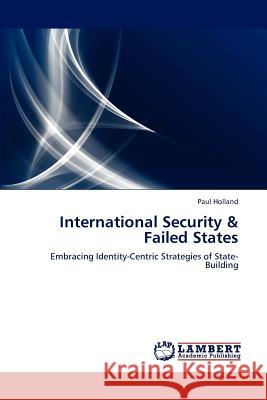International Security & Failed States » książka
International Security & Failed States
ISBN-13: 9783659280030 / Angielski / Miękka / 2012 / 68 str.
The balance of power between states is no longer the sole source of state insecurity. In the twenty-first century it will increasingly be joined by non-state threats lurking behind de jure sovereignty. Disease, piracy, terrorism, organized crime, and rapacious corporations all take advantage of the poverty and lack of institutional capacity endemic to failed and weak states. Since these threats are not contained by borders, it is a security imperative that states engage in state-building operations. For state-building to be successful in this context, the role of identity must be incorporated into the process to secure the blessings of legitimacy. Partition or federacy offer two structural solutions to the problem of incorporating divergent identities into the process of building legitimate institutional capacity and strength.
The balance of power between states is no longer the sole source of state insecurity. In the twenty-first century it will increasingly be joined by non-state threats lurking behind de jure sovereignty. Disease, piracy, terrorism, organized crime, and rapacious corporations all take advantage of the poverty and lack of institutional capacity endemic to failed and weak states. Since these threats are not contained by borders, it is a security imperative that states engage in state-building operations. For state-building to be successful in this context, the role of identity must be incorporated into the process to secure the blessings of legitimacy. Partition or federacy offer two structural solutions to the problem of incorporating divergent identities into the process of building legitimate institutional capacity and strength.











